Tired of your coffee tasting stale? Do you keep your beans in the fridge or freezer, but they still don’t seem to last as long as you’d like? Well, you’re not alone.
Many coffee lovers are confused about the best way to store their beans.
But don’t worry, I’m here to help. In this article, I’ll tell you exactly where you should store your coffee beans to keep them fresh and flavorful for as long as possible.
So read on, and learn the secrets to storing coffee like a pro!
Why is coffee storage necessary?
Proper coffee storage is crucial for maintaining the freshness and quality of your coffee beans or grounds. Coffee is a delicate product that can easily lose flavor and aroma if not stored correctly.
Here are a few reasons why coffee storage is essential:
1. Preservation of flavor:
Coffee beans contain volatile compounds that give them unique flavors and aromas. When exposed to air, heat, light, and moisture, these compounds can deteriorate, resulting in a loss of flavor.
Proper storage helps preserve these compounds and maintain your coffee’s rich and complex flavors.
2. Protection from oxidation:
Oxygen is one of the biggest enemies of coffee freshness. When coffee comes into contact with oxygen, it undergoes oxidation, leading to its flavors’ degradation.
Storing coffee in airtight containers minimizes its exposure to oxygen and prolongs its freshness.
3. Prevention of moisture absorption:
Coffee is hygroscopic, meaning it readily absorbs moisture from its surroundings. Water can cause coffee beans or grounds to become stale and develop off-flavors.
By storing coffee in a dry and relaxed environment, you can prevent moisture absorption and maintain the quality of your coffee.
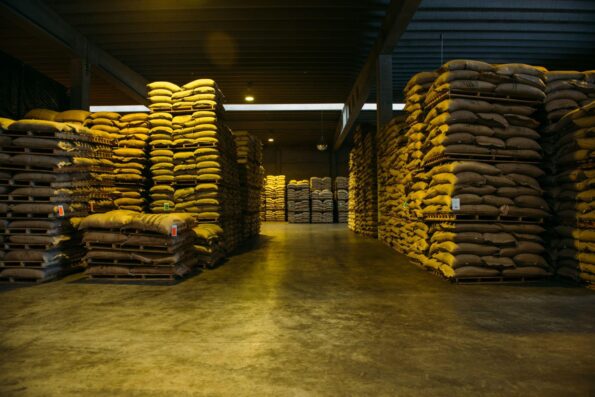
4. Avoidance of flavor contamination:
Coffee has a strong ability to absorb odors from its surroundings. Storing coffee near strong-smelling substances, such as spices or cleaning products, can contaminate flavor.
Proper storage in airtight containers or bags can help prevent unwanted flavors from seeping into your coffee.
5. Extended shelf life:
By storing coffee properly, you can extend its shelf life and enjoy fresh-tasting coffee for longer.
This is particularly important if you buy coffee in bulk or if you don’t consume coffee sparingly.
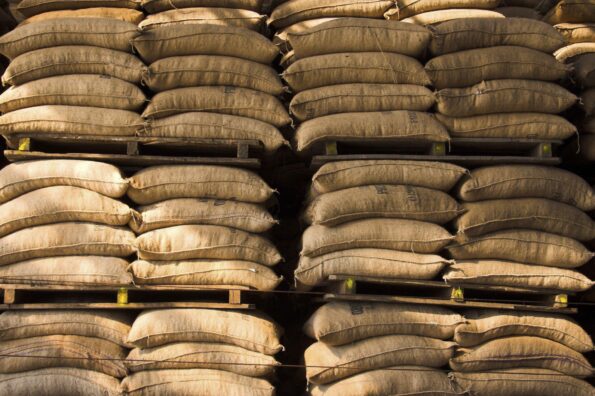
Factors affecting coffee freshness
When storing coffee, several factors can affect its freshness and quality. Understanding these factors is crucial in determining the best storage method for coffee.
1. Oxygen exposure:
Oxygen is one of the biggest enemies of coffee freshness. When coffee beans or grounds are exposed to oxygen, they undergo a process called oxidation, leading to flavor and aroma degradation. Therefore, storing coffee in an airtight container is essential to minimize oxygen exposure.
2. Moisture:
Moisture can also hurt coffee freshness. Excess moisture can prevent coffee beans or grounds from becoming stale and losing flavor. It is recommended to store coffee in a dry environment to avoid moisture absorption.
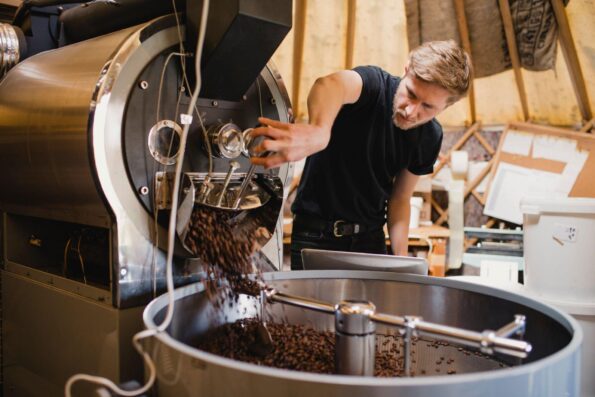
3. Temperature:
Temperature plays a significant role in maintaining coffee freshness. Extreme temperatures, whether too hot or too cold, can accelerate the deterioration of coffee.
It is essential to store coffee in a relaxed and stable temperature environment to preserve its flavor and aroma.
4. Light exposure:
Exposure to light can also affect the quality of coffee. UV rays from sunlight can cause coffee to degrade and lose its freshness. It is best to store coffee in a dark place or in an opaque container to protect it from light exposure.
Considering these factors, let’s evaluate the three storage options: fridge, freezer, and cupboard.
Storing coffee in the fridge can prolong its freshness by reducing temperature fluctuations and minimizing exposure to light.
However, the refrigerator can also introduce moisture and odors that can affect the flavor of the coffee.
Storing coffee in the freezer can be beneficial in terms of preserving freshness for a more extended period. The low temperature can slow the oxidation process and extend the shelf life of coffee.
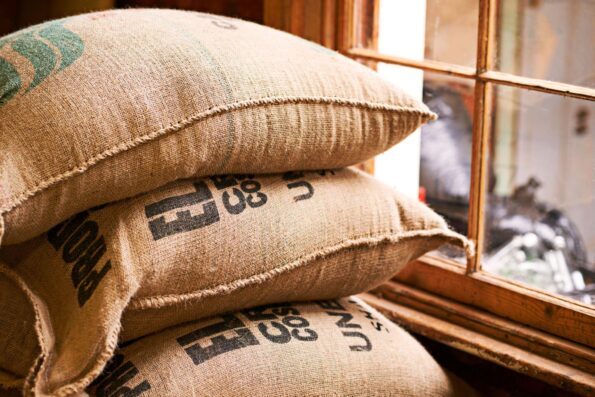
Storing coffee in the fridge
When it comes to storing coffee, many people consider keeping it in the fridge. The idea behind this is that the cold temperature can help preserve the freshness and flavor of the coffee beans.
However, some essential factors must be considered before storing your coffee in the fridge.
Coffee is hygroscopic
Firstly, it is essential to note that coffee is hygroscopic, which means it can absorb moisture from its surroundings.
When coffee beans are exposed to water, they can become stale and lose flavor. Storing coffee in the fridge can cause it to condense, leading to moisture absorption and degradation of the coffee’s quality.
Strong-smelling foods in the fridge
Another factor to consider is the presence of other strong-smelling foods in the fridge. Coffee can absorb odors, so storing it alongside foods with solid aromas can result in a flavored coffee that may not be desirable. The fluctuating temperatures in the fridge can also affect the coffee’s flavor and aroma.
However, there are some benefits to storing coffee in the fridge. The cold temperature can slow the oxidation process, which can help preserve the coffee’s freshness for a more extended period. This can be particularly useful if you have a large quantity of coffee that you won’t be able to consume within a short period.
To store coffee in the fridge, it is recommended to use an airtight container to minimize exposure to moisture and odors. Once you remove the coffee from the refrigerator, let it come to room temperature before brewing. This will ensure that the coffee extracts properly and results in a flavorful cup.
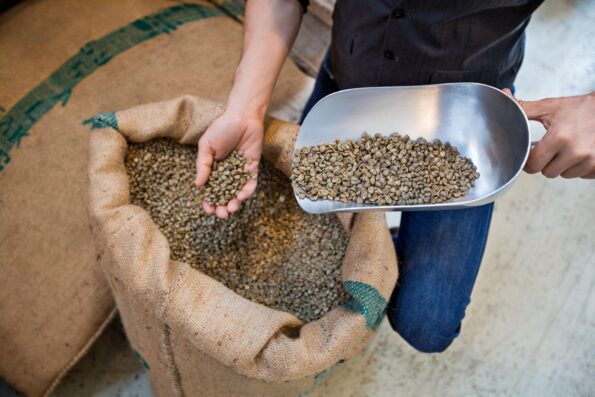
Pros and cons of storing coffee in the fridge
Storing coffee in the fridge is common for many coffee lovers, but it has pros and cons. Here are some of the advantages and disadvantages of storing coffee in the fridge:
1. Extended freshness: One of the main reasons people choose to store coffee in the fridge is to extend its freshness. The cool temperature helps slow the oxidation process, which can lead to the deterioration of coffee flavor. By keeping coffee in the fridge, you can preserve its freshness for longer.
2. Protection from heat and light: The fridge provides a controlled environment that protects coffee from heat and light, which are two factors that can negatively impact its flavor. Heat can cause the coffee oils to degrade, resulting in a stale taste, while light can accelerate the oxidation process. Storing coffee in the fridge helps to minimize these effects.
3. Convenient storage: The fridge is a convenient storage option, mainly if you have limited space in your kitchen. It lets you keep your coffee beans or grounds easily accessible and organized.
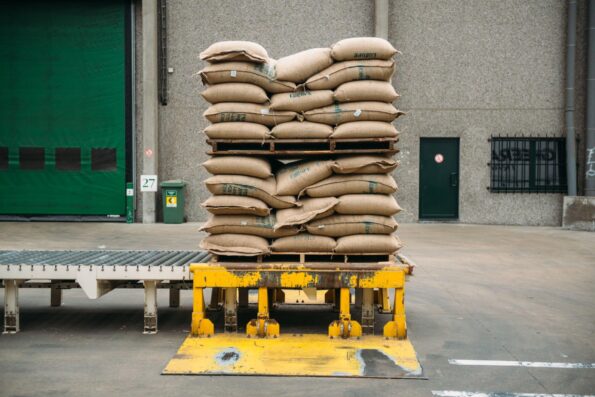
Despite these advantages, there are also some drawbacks to storing coffee in the fridge:
1. Moisture absorption: Coffee is hygroscopic, meaning it can absorb moisture from its surroundings. Storing coffee in the refrigerator exposes it to moisture, which can lead to the loss of flavor and aroma. Additionally, the moisture can cause the coffee to clump together, making it difficult to measure and brew.
2. Flavor contamination: The fridge can be filled with various odors from other food items, and coffee can easily absorb these odors. This can result in a coffee with an unpleasant taste and aroma.
3. Condensation issues: When you remove coffee from the fridge and expose it to room temperature, condensation can form on the container. This moisture can affect the quality of the coffee and lead to flavor degradation.
In conclusion, storing coffee in the fridge can extend its freshness and protect it from heat and light. However, it is essential to be aware of the potential issues with moisture absorption, flavor contamination, and condensation.
Ultimately, the best storage method for coffee depends on personal preference and the specific conditions of your kitchen.
Storing coffee in the freezer
When storing coffee, the freezer is often considered a viable option. Freezing coffee can help to preserve its freshness and extend its shelf life. However, certain factors must be considered before deciding to store your coffee in the freezer.
One of the main advantages of freezing coffee is that it slows the oxidation process. Oxygen is one of the biggest enemies of coffee freshness, as it can cause the beans to go stale quickly. By freezing coffee, you can minimize the exposure to oxygen and maintain its flavor for longer.
Using an airtight container or bag is essential to store coffee in the freezer. This will prevent moisture or odors from seeping into the coffee and affecting its taste.
It is also recommended to divide the coffee into smaller portions before freezing so that you only thaw what you need each time. This helps to minimize the number of times the coffee is exposed to air and moisture.
Storing coffee in the cupboard
Storing coffee in the cupboard is a standard method that many people use. It is convenient and easily accessible, making it a popular choice for coffee storage. However, some factors should be considered when storing coffee in the cupboard.
One of the main advantages of storing coffee in the cupboard is that it is kept at room temperature. Coffee beans or grounds can be affected by extreme temperatures, and holding them in a cool and dry place helps to maintain their freshness.

Cupboards are typically located in areas of the house that are not exposed to direct sunlight or heat sources, which can degrade the quality of the coffee.
Another benefit of storing coffee in the cupboard is that it allows for proper air circulation. Coffee beans release carbon dioxide after they are roasted, and storing them in a container with a one-way valve allows the gas to escape without allowing oxygen to enter. This helps to preserve the flavor and aroma of the coffee.
Pros and cons of storing coffee in the cupboard
When storing coffee, many people opt for the convenience of keeping it in their kitchen cupboard. This is a common practice, but it has pros and cons.
One of the main advantages of storing coffee in the cupboard is that it is easily accessible. You can reach for your coffee beans or ground coffee whenever needed without going to the fridge or freezer.
This can be incredibly convenient when you rush to make your first cup of coffee in the morning.
Another benefit of storing coffee in the cupboard is that it can help preserve its flavor.
Coffee is sensitive to light, moisture, and air, and keeping it in a dark and dry cabinet can help protect it from these elements. This can help maintain the freshness and quality of your coffee for a more extended period.
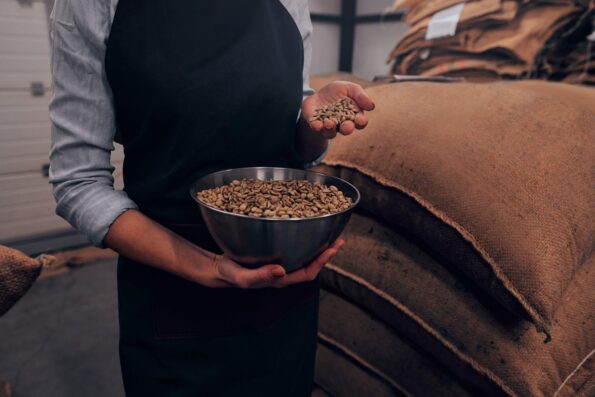
Conclusion
In conclusion, the best storage method for coffee in 2023 depends on various factors such as personal preference, the type of coffee, and the desired freshness level.
While there are pros and cons to storing coffee in the fridge, freezer, and cupboard, it is essential to consider the following recommendations.
FAQ
Should coffee be stored in the fridge, freezer, or cupboard?
Many people wonder about the best storage method for coffee to maintain its freshness and quality. Let’s explore the options:
Is it recommended to store coffee in the fridge?
Storing coffee in the fridge is a common practice for some people. However, there are better storage methods. The refrigerator can introduce moisture and odors that can negatively affect the flavor of the coffee. Additionally, the temperature fluctuations in the fridge can cause condensation, leading to the deterioration of the coffee beans.
What about storing coffee in the freezer?
While the freezer can help prolong the shelf life of coffee, it is not without its drawbacks. Freezing coffee can cause the oils in the beans to break down, resulting in a loss of flavor. Furthermore, freezing and thawing can lead to moisture buildup, impacting the taste and quality of the coffee.
Is storing coffee in the cupboard a better option?
Storing coffee in a cool, dry cupboard is generally the recommended method. It helps to preserve the flavor and aroma of the coffee. However, it is essential to ensure that the closet is not exposed to direct sunlight or excessive heat, as these can also affect the quality of the coffee.
What are the pros and cons of storing coffee in the fridge?
The pros of storing coffee in the fridge include potential extended shelf life and protection from heat. However, the cons include the risk of moisture and odor absorption and flavor degradation due to temperature fluctuations.
What are the pros and cons of storing coffee in the freezer?
The pros of storing coffee in the freezer include prolonged shelf life and protection from heat. However, the cons include potential flavor loss due to oil breakdown and moisture buildup during the freezing and thawing.
What are the pros and cons of storing coffee in the cupboard?
The pros of storing coffee in the cupboard include preserving the flavor and aroma of the coffee. However, the cons include the risk of exposure to sunlight and excessive heat, which can impact the quality of the coffee.

My name is Michael Jones, and I’m a coffee enthusiast and expert based in the US. I run my own coffee shop, and I’m passionate about everything related to coffee. On my website, Coffee and Comfort, I share my knowledge and tips to help you elevate your coffee experience. Whether you’re a beginner brewer or a seasoned barista, I have something for everyone. I’ll teach you how to choose the right coffee beans, grind them perfectly, and brew a delicious cup of coffee at home. I’ll also share tips on how to make different coffee drinks, like lattes, cappuccinos, and espressos. But more than just teaching you about coffee, I want to help you create a coffee lifestyle that you love. Coffee is more than just a beverage; it’s a way to connect with people and enjoy the simple things in life.
